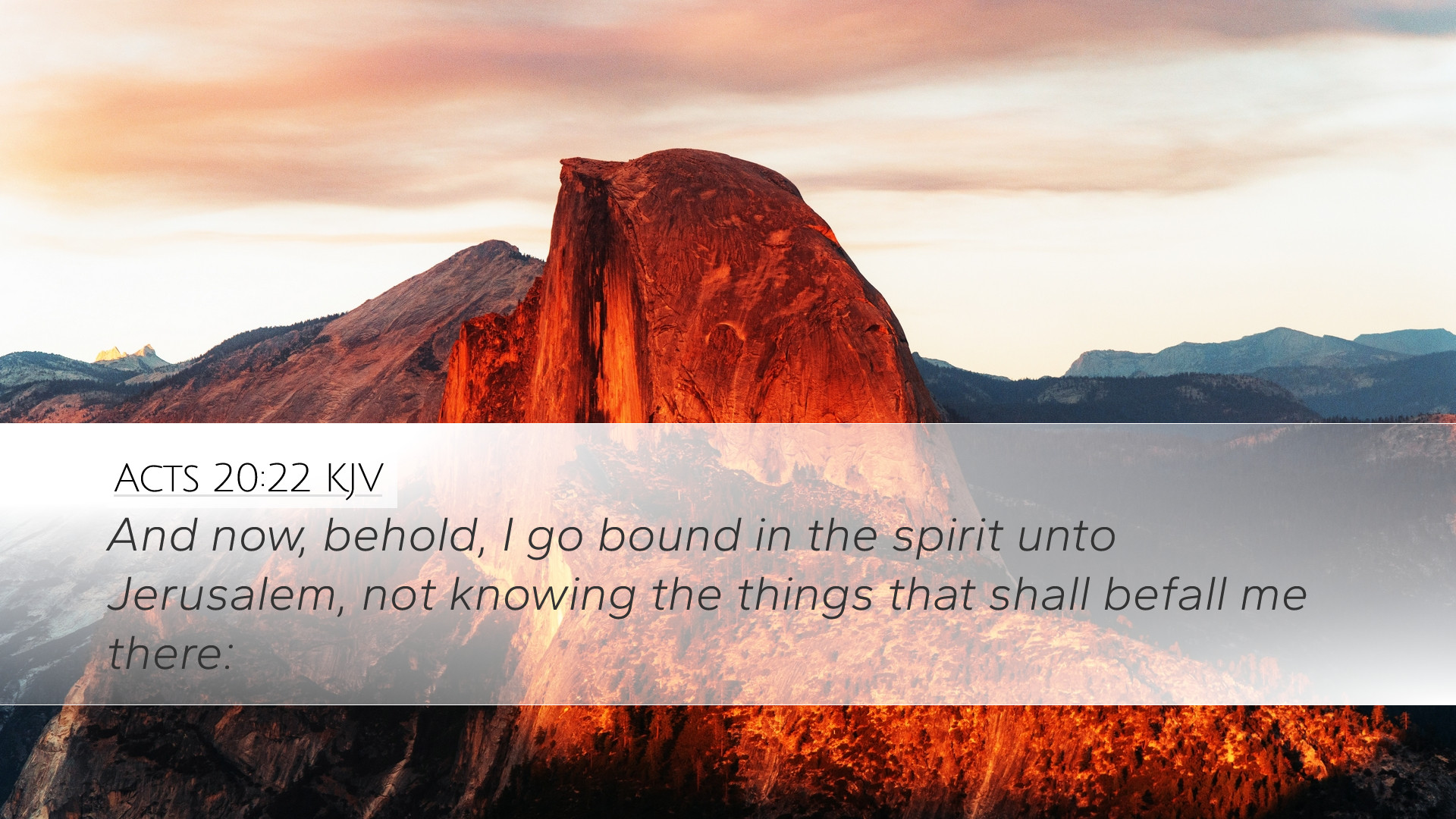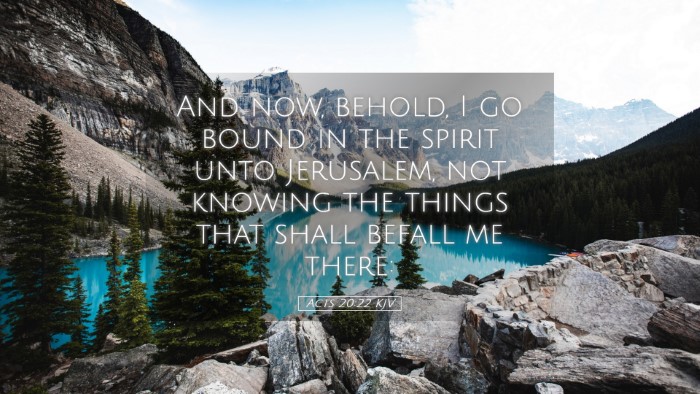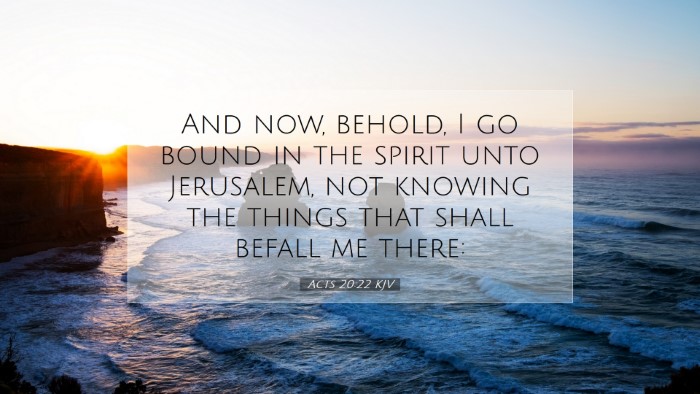Commentary on Acts 20:22
Introduction
Acts 20:22 is a pivotal verse in the narrative of the Apostle Paul's ministry, encapsulating his determination, sense of calling, and the challenges he was prepared to face. This verse reads:
"And now, behold, I go bound in the spirit unto Jerusalem, not knowing the things that shall befall me there."
This commentary seeks to explore the insights drawn from public domain commentaries including those of Matthew Henry, Albert Barnes, and Adam Clarke, providing a thorough understanding of the implications of this verse for pastors, students, theologians, and Bible scholars.
Exegesis of Acts 20:22
Bound in the Spirit
Paul states that he is "bound in the spirit." This phrase highlights the compelling nature of his divine calling. Matthew Henry observes that Paul was driven by the Holy Spirit to undertake this journey despite his uncertainty regarding what awaited him. This illustrates a profound commitment to God’s will, suggesting that true discipleship often requires actions motivated by spiritual conviction over personal safety.
Journey to Jerusalem
Paul’s journey to Jerusalem signifies more than a mere travel itinerary; it represents a theological and spiritual pilgrimage. Albert Barnes notes that Jerusalem was the heart of the Jewish faith, and by going there, Paul aimed to fulfill a mission to the Jewish believers, while also preparing himself for the trials ahead. This act embodies a significant intersection of faith and duty.
Uncertainty Ahead
Paul admits his lack of knowledge concerning what would happen to him in Jerusalem. Adam Clarke emphasizes that this reveals the essence of faith—the trust in God’s providence even amidst uncertainty. Paul’s willingness to proceed despite the unknown challenges is a powerful testament for modern believers about the nature of faith and the assurance found in following God’s path. Such a posture is crucial for ministers who often face unpredictable circumstances in their ministries.
Theological Implications
This verse raises several theological implications for pastors and Bible scholars:
- The Sovereignty of God: Paul’s journey emphasizes God's sovereignty over the lives of His servants. The assurance that God directs our paths encourages believers to trust Him in their respective journeys.
- Divine Appointments: Paul’s resolve demonstrates the notion of divine appointments in the life of a believer. Each step taken in faith can lead to encounters and ministry opportunities orchestrated by God.
- The Cost of Discipleship: Paul’s willingness to face adversity serves as a reminder that discipleship may come with significant sacrifice. This notion is vital for church leaders as they encourage congregations to consider the depth of their commitment to Christ.
Practical Applications
For pastors, students, and theologians, Acts 20:22 invites several practical applications:
- Embrace Uncertainty: Encourage congregants to step out in faith, recognizing that life’s uncertainties are part of the journey. Teach them that God’s guidance often comes amid unclear circumstances.
- Courage in Calling: Pastoral leaders must be prepared to navigate their calling with courage, just as Paul did. This means equipping themselves and their flocks to face opposition while remaining faithful to God’s mission.
- Importance of Community: The context of this verse highlights the significance of community in ministry, as Paul was not alone in his mission. Foster an environment of support and accountability within church settings.
Conclusion
Acts 20:22 serves as a profound exhortation for all who seek to follow God’s call. Through the insights from Matthew Henry, Albert Barnes, and Adam Clarke, we can ascertain that Paul’s commitment amidst uncertainty represents a model of faith that encourages individual believers and ecclesiastical leaders alike to pursue their divinely ordained paths with boldness and trust.
In conclusion, this commentary not only reflects on the immediate implications of Paul’s experience but also offers timeless truths that continue to inspire and challenge modern-day believers as they navigate their spiritual journeys.


